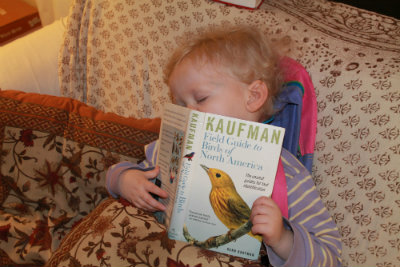 I came across a great article by Brandy over at her blog After Thoughts. She says many new homeschooling parents focus first on picking out a curriculum (who can blame them — it’s such fun!), but there are 3 questions that are more important than ones about curriculum.
I came across a great article by Brandy over at her blog After Thoughts. She says many new homeschooling parents focus first on picking out a curriculum (who can blame them — it’s such fun!), but there are 3 questions that are more important than ones about curriculum.
1. Why are you homeschooling?
I think she is so right about this. Every homeschooler, whether new or seasoned, has hard days when they wonder whether they made the right choice for their family. By being clear with yourself about why you’re choosing this path, it’s easier to make wise choices during those hard times. Brandy suggests that parents even make a homeschooling mission statement.
I’ve found that my primary reasons for homeschooling have changed over the years, but I still consider this question every year as begin a new school year. I’ve never done anything as formal as creating a mission statement, but I love this idea.
2. What is a child?
One of Charlotte Mason’s most important contributions to education is her understanding that how we view children will influence how we educate them. She believed (as do I) that children bear the divine image of God; they are capable of expressing and reflecting Godly attributes. Children are thus born whole persons, and not formless lumps that need molding in order to become valuable. Like all human beings, they possess a natural yearning for God and desire for knowledge. This is no accident. This hunger is God’s very image present in the soul of every human — present from birth– calling us out of ourselves to seek Him, to seek Truth and Beauty.
How a teacher or a curriculum developer answers this question will impact the curriculum. Brandy writes, “I’ve read works by educators who assert that a child ‘is an organism that needs to adapt to its environment.’ Or, a child is ‘a human data machine.’ You’ll find that the curriculum logically follows.” The fact is, our assumptions about children drive the way we interact with them, what we believe they need from us to thrive, and which experiences and materials we believe are valuable for them.
3. What is the purpose of education?
Why do we educate children? Is it ensure they get a good job? Contribute to society? Conform to social expectations? What do you want for your child? For Philip and me, the purpose of education is to shape our children’s hearts — to instill in them wisdom, love, and faith, to release them to their authentic mission which God has planned for them.
See Brandy’s article here. She’s right. Being clear up front about why we’re homeschooling, what we believe about children’s minds, and the purpose of educating them will make curriculum choices a lot easier.